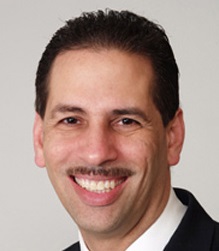By Bob Allen
The United States Supreme Court refused March 30 to hear a case challenging a New York City policy of not allowing churches to worship in public schools.
The high court declined without comment to review an April 2014 decision by the 2nd U.S. Circuit Court of Appeals upholding a policy which allows other community groups, but not churches, to meet in public schools after hours.
The city permits groups to rent school facilities for extended periods of time for “social, civic and recreational meetings and entertainment, and other uses pertaining to the welfare of the community.” There are few limitations on extended use, but one prohibits using school buildings for “religious worship services” or as a “house of worship.”
The Bronx Household of Faith, a small evangelical congregation founded in 1971, originally sued the city claiming the policy violated their free-speech rights by denying them a forum allowed to others because of the religious content of their message. After losing that case in 2011, the church pursued a second claim under the First Amendment guarantee of free exercise of religion.
Lawyers for the Alliance Defending Freedom argued that excluding worship services from “a broadly available public forum” discriminates against religion. The church, which has outgrown its own building, needs more space for special occasions and the nearby public school is the only place large enough that they can afford.
The appeals court, however, said the reason the space is affordable is because of taxpayer subsidies, and the school board is taking reasonable precaution against liability for appearing to unconstitutionally advance a particular religion.
“The Free Exercise Clause does not entitle Bronx Household to a grant from the board of a subsidized place to hold religious worship services,” the appellate court ruled. Further, the court found no evidence the rule was “motivated by hostility to religion.”
 Fernando Cabrera, a council member and pastor leading opposition to the policy said he was “profoundly disappointed” that the Supreme Court won’t be hearing the case.
Fernando Cabrera, a council member and pastor leading opposition to the policy said he was “profoundly disappointed” that the Supreme Court won’t be hearing the case.
“We cannot ignore the immense contribution to society that religious organizations and institutions have made throughout our nation’s history and continue to make across the U.S. today,” he said in a statement. “Churches meeting in New York City public schools for worship services have fed the poor and needy, assisted in rehabilitating drug addicts and gang members, helped rebuild marriages and families and provided for the disabled.”
The Alliance Defending Freedom called on New York City Mayor Bill de Blasio to use his power to revoke the policy. De Blasio said last year he opposes the policy and believes “that a faith organization playing by the same rules as any community nonprofit deserves access.”
“Any community group can meet in New York City’s school buildings during non-school hours for any purpose — except for religious groups meeting to worship God,” said Jordan Lorence, senior counsel for the Christian-based legal organization specializing in cases involving freedom of religion. “This policy is clearly nothing more than religious segregation — the kind of segregation the mayor has said he opposes.”
